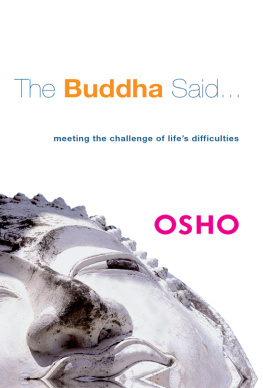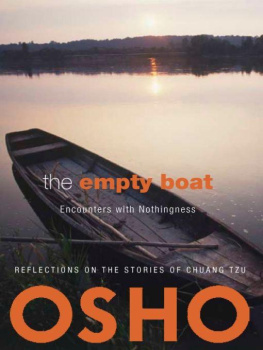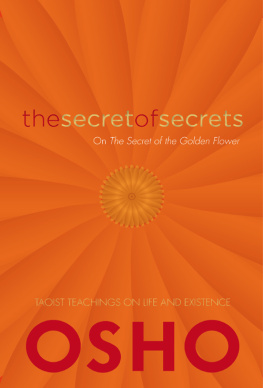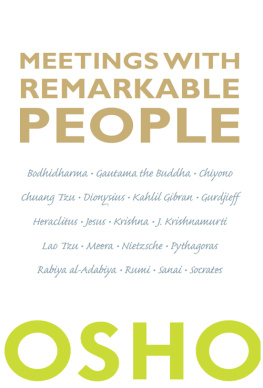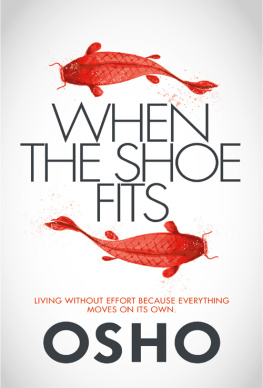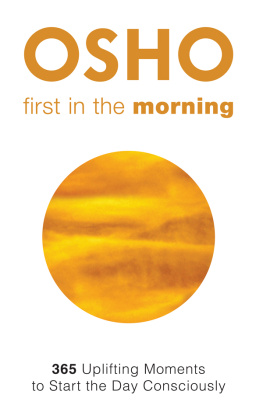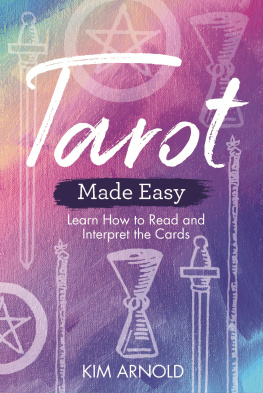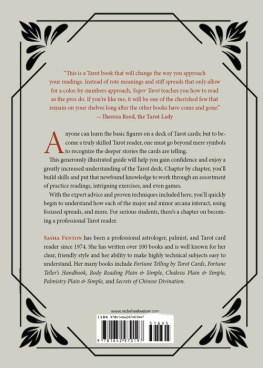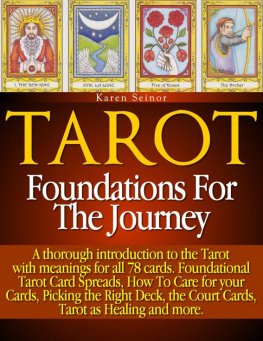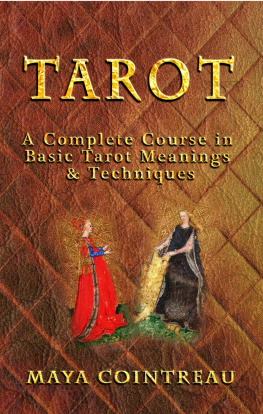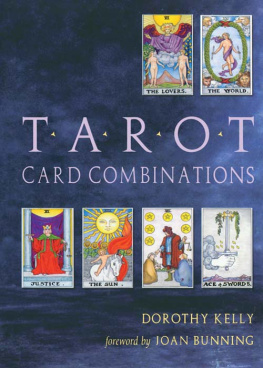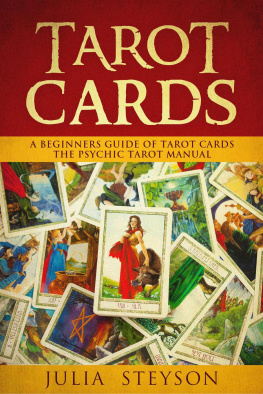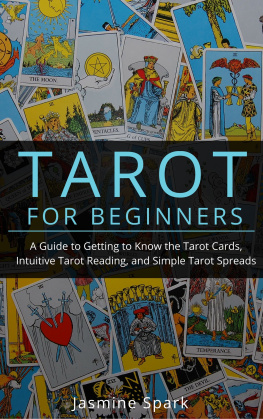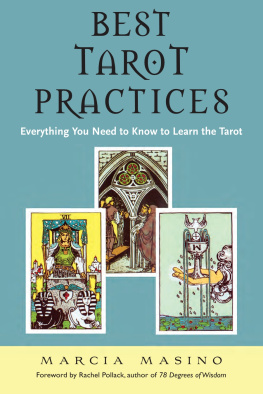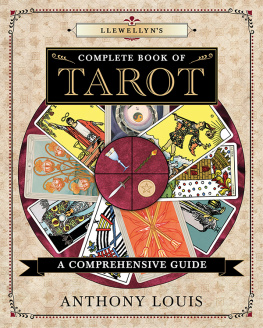In 1995, St. Martins Press published the revolutionary Osho Zen Tarot for the first time. This extraordinarily beautiful and accessible Tarot deck has since become a modern classic, and its uniquely contemporary message has been translated into more than a dozen languages.
Tarot in the Spirit of Zen is a handbook designed to broaden and deepen the understanding of those who use the Osho Zen Tarot. This audience of readers will understand immediately how to use this book as a valuable supplement to the handbook they already have, which comes packaged together with cards. We know they will welcome its publication with as much enjoyment as we have had in selecting and compiling the materials for publication.
Users of other, more traditional tarots, like the Crowley and Rider-Waite decks, will also find this book to be a valuable addition to their libraries. For these readers, we have provided a table of correspondences at the back of the book. The book is organized into chapters corresponding to the seventy-eight cards in a standard tarot deck. In the table, you will find the names of each chapter in the book and the references to corresponding cards in both the Crowley and Rider-Waite decks.
Newcomers to the tarot will particularly enjoy the tear-out mini-cards bound into the back of the book, representing the Major Arcana cards of the Osho Zen Tarot. In the tarot system these cards represent the major transformation points that recur throughout the cycle of a life. The cards correspond to Chapters 0 (The Fool) through XXI (Completion) in the text.
Unlike traditional tarot, with its focus on predicting future events, the Zen approach to tarot aims to bring clarity and insight to the present moment. This is based on the understanding that life can seem random and accidental only if we remain unaware and asleep through it. Neither is life something controlled and directed by fateit is a constantly unfolding process of opportunities for learning and growth. Zen insists that we take individual responsibility for this learning and growth, and the first step in taking that responsibility is to have the courage to look at our present realities without judgment or condemnation. In other words, there are no evil forces in Zenonly awareness or unawareness, awakening or sleep.
For more about what distinguishes the Zen approach to tarot from more traditional approaches, be sure to read the Introduction chapter. And most of all enjoy the game.
Sarito Carol Neiman
OSHO INTERNATIONAL
On Predicting the Future
Freedom can exist only if the future is open. But about an open future there is no possibility of prediction. The man who was so beautiful today may commit a murder tomorrow. Tomorrow is open.
One thing that is very fundamental has to be remembered, and that is that whenever we are doing anythingastrology, future prediction, horoscope readings, palmistry, the I-Ching, tarotanything that is concerned with the future, it is basically a reading of the unconscious of the person. It has nothing much to do with the future. It has more to do with the past, but because the future is created by the past, it is relevant to the future, too. Because people live like mechanical things, the prediction is possible. If you know the past of the person, unless the person is a buddha, you will be able to predict his future because he is going to repeat it. If he has been an angry person in the past, he is carrying the tendency to be angry; that tendency will have effects in the future.
Ordinarily, an unconscious being goes on repeating his past again and again. It is a wheel-like phenomenon, he repeats it; he cannot do anything else. He cannot bring any new thing into his life, he cannot have a breakthrough. Thats why all these sciences work. If people are more aware, more alert, they wont work.
You cannot read the horoscope of a buddha, or read his hand, because he is so free of the past and he is so empty in the present that there is nothing to read!
There has been a great misunderstanding between life and time. Time is thought to consist of three tenses: past, present, futurewhich is wrong. Time consists only of past and future. It is life that consists of the present.
So those who want to live, for them there is no other way than to live this moment. Only the present is existential. The past is simply a collection of memories, and the future is nothing but your imaginations, your dreams.
Reality is here, now. Those who want just to think about life, about living, about lovefor them, past and future are perfectly beautiful because they give infinite scope. They can decorate their past, make it as beautiful as they likealthough they never lived it; when it was present they were not there. These are just shadows, reflections. They were continuously running, and while running they have seen a few things. They think they have lived. But in the past, only death is the reality, not life. In the future also, only death is the reality, not life.
Those who have missed living in the pastautomatically, to substitute for the gapstart dreaming about the future. Their future is only a projection out of the past. Whatever they have missed in the past, they are hoping for in the future; and between the two non-existences is the small, existent moment that is life.
For those who want to live, not to think about it; to love, not to think about it; to be, not to philosophize about itthere is no other alternative. Drink the juices of the present moment, squeeze it totally because it is not going to come back again. Once gone, it is gone forever.
But because of the misunderstanding, which has been almost as old as manand all the cultures have joined in itpeople have made the present part of time. And the present has nothing to do with time. If you are just here in this moment, there is no time. There is immense silence, stillness, no movement; nothing is passing, everything has come to a sudden stop.
The present gives you the opportunity to dive deep into the water of life, or to fly high into the sky of life. But on both sides there are dangerspast and future are the most dangerous words in human language. Between past and future, living in the present is almost like walking on a tightropeon both sides there is danger. But once you have tasted the juice of the present, you dont care about dangers. Once you are in tune with life, then nothing matters. And to me, life is all there is.
You can call it God, but that is not a good name because religions have contaminated it. You can call it existence, which is beautiful. But what you call it is not of any consequence. The understanding should be clear that you have only one moment in your handsthe real moment. And again and again you will get that real moment. Either you live it or you leave it unlived.
Most people simply drag themselves from the cradle to the grave without living at all. I have heard a Sufi story about a man, when he died, who suddenly realized, My God, I was alive. Only death, as a contrast, made him aware that for seventy years he had been alive. But life itself had not enriched him.


